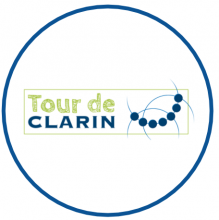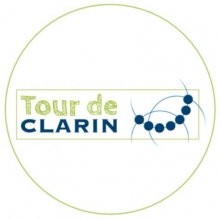News

Lund University Humanities Lab is a department for research infrastructure, interdisciplinary research and training. Since 2017, the Lab is a certified CLARIN Knowledge Centre with a special focus on multimodal and sensor-based methods.

Lancaster Summer Schools in Corpus Linguistics offer a week of intensive training in corpus linguistics, in which lectures are combined with practical, hands-on sessions in computer labs.

GATE is a widely used, established open-source infrastructure that provides a framework and numerous essential components (plugins) for all kinds of NLP and text processing tasks.

Katarzyna Klessa and Anita Lorenc are experimental phoneticians who have prepared a Polish corpus of disordered speech, which has been released in a GDPR-compliant manner in collaboration with the K-ACE Knowledge Centre.

In this Tour de CLARIN post, we present an interview with Eva Gredel and Yana Strakatova, both of whom have successfully collaborated with CLARIN-D.

One central focus of CLARIN-D is the support of early-stage researchers in the Digital Humanities. Read all about it in the blog post written by Nathalie Walker.

WebLicht is an environment for building and executing chains of natural language processing tools, with integrated capabilities for visualizing and searching the resulting annotations. WebMAUS is a web service for automatic word and phoneme alignment.

The national consortium CLARIN-D has been contributing to the European CLARIN research infrastructure since 2008.

Read the blog post about the K-Centre for Atypical Communication Expertise (ACE ) and its mission is to support researchers engaged in investigating what can be characterised as atypical communication.

Tour de CLARIN visits the CLARIN-UK consortium. The UK has been an observer of CLARIN since 2015 and is now almost half-way through its second three-year period.